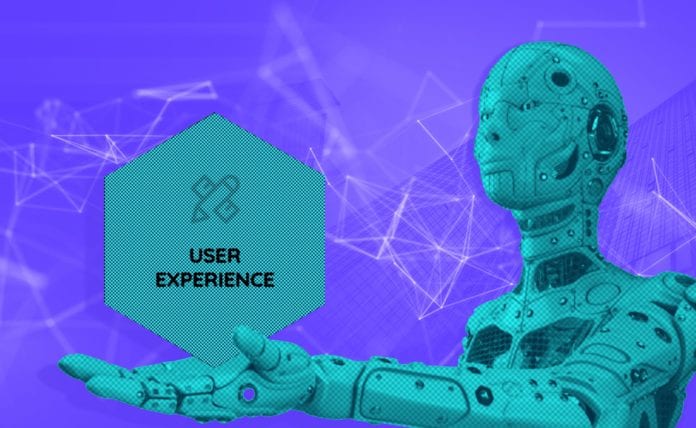
What Is A Good User Experience?
Imagine walking into a new restaurant; you get greeted by the staff. They direct you to your seat, tell you their unique dishes and help you order food. They make sure you are treated well, serve you good food, and take your feedback when you leave. It is an example of a good user experience. A bad user experience is like a never-ending spiral staircase; you go on climbing the stairs but don’t find what you are looking for in the end. You keep on revolving and revolving, but nothing comes up.
In the current digital world, user satisfaction plays a key role. Whether it is a website, mobile application, or customer care, the job is to satisfy the customer. And because of this, the UX design process has gained a lot of importance. UX design trends keep evolving with time. Now is the time of Artificial Intelligence (AI). In this blog, let us look into how AI has revolutionized the design field.
5 Ways to Enhance User Experience with AI
Artificial Intelligence has made a dramatic impact on user experience. From personalized advertisements to intelligent chatbots, the UX has made a great leap. Let us look into 5 of the ways AI has enhanced user experience.
Personalized User Experience
Artificial Intelligence helps in identifying user behavior and expectations. You will see user behavioral patterns, which will help provide customized recommendations and content to the users. One real-life example is when users receive movie suggestions on OTT platforms or video suggestions on YouTube based on past behavior.
AI helps in giving more useful content to the users. It also helps in tracking user interactions on a website. So if you find the customers struggling at a point, you can change the design or design a chatbot to help the customer move further.
Smarter Content
AI algorithms can determine what blogs users read, email browsing data, websites visited, and the duration spent on each website. This helps find out relevant content to draft personalized emails for customers. After all, who wouldn’t prefer a personalized email, even if it has promotional content?
AI helps create personalized email content for each user by analyzing their behavior patterns on each website and the blogs they read. It helps in sending emails that are more relevant to the customer.
24/7 Uninterrupted Work
As technology is improved, AI becomes cheaper and productive. With the help of AI, you can achieve 24 hours of uninterrupted work. It doesn’t necessarily mean AI will replace humans, but people can concentrate on more complicated tasks.
With AI, 24/7 assistance to customers is possible. It will also make sure the employees do not have to work extra shifts. This ensures that business flows smoothly and uninterrupted.
AI Integrated Customer Support
Chatbots on websites are perfect examples of AI integrated customer support. You can talk to these chatbots, and they will direct you accordingly. Another example is the voice assistants you speak to when you call customer service. They will try to solve your issue first if not possible; they will forward the technical support call. It helps in managing the massive traffic of customer complaints.
IoT to Enhance User Experience
When artificial intelligence takes the form of IoT, there come countless possibilities to improve the user experience. Driverless cars are a primary example of this. IoT can make your houses smart; automatic temperature and light control are possible now. Combining Design thinking and IoT gives a more effective and user-friendly implementation of IoT technology.
How Can AI Help Designers Create a Better User Experience?
The use of Artificial Intelligence in the design process has made it more comfortable and efficient. With AI providing information about user behavior and patterns, the design can become more relevant and customer friendly. Another benefit AI offers is in prototyping. Prototyping is the step where the designer analyses the usability of the design idea. Let us look into some of the AI-based prototyping tools and how they can help.
Uizard
Uizard is the best prototyping tool that automatically transforms the wireframe into prototypes. It can convert hand-drawn sketches or wireframes to prototypes. Another highlight is it can use frontend code automatically from the prototype. It simplifies and fasts forwards the design process. Uizard also has a built-in style guide system that enables the designer to create custom components in the UI.
InVision
InVision is one of the most popular rapid prototyping tools. With Invision, you can create excellent mock-ups for the wireframes. The designer’s main highlight can create animations, transitions and share the screen with the other designers. It allows the designer to develop the clickable version of the design to be tested and presented to the user or client.
Airbnb AI
The project’s fundamental idea was to give the test idea less time and more time to test the functional prototype. Airbnb’s AI technology, design components from the hand-drawn sketches can be recognized and is automatically rendered to the source code. It makes the design process faster and more efficient.
Final Thoughts
Artificial Intelligence has made the user experience a more enriching one. They get pampered with customized products and personalized services. The business has become more about user experience now.
With more frequent use of IoT, the next big thing, the user experience, will get even better. But the UX design for IoT needs to be more researched and efficient. It will help the technology to gain more popularity amongst people.
We are moving towards a more digitally connected world and smart gadgets. Imagine websites and applications that can evolve according to the user requirements in real-time, as an intelligent movie or music playlist for your current mood. The user experience and design trends will keep on advancing with time.
